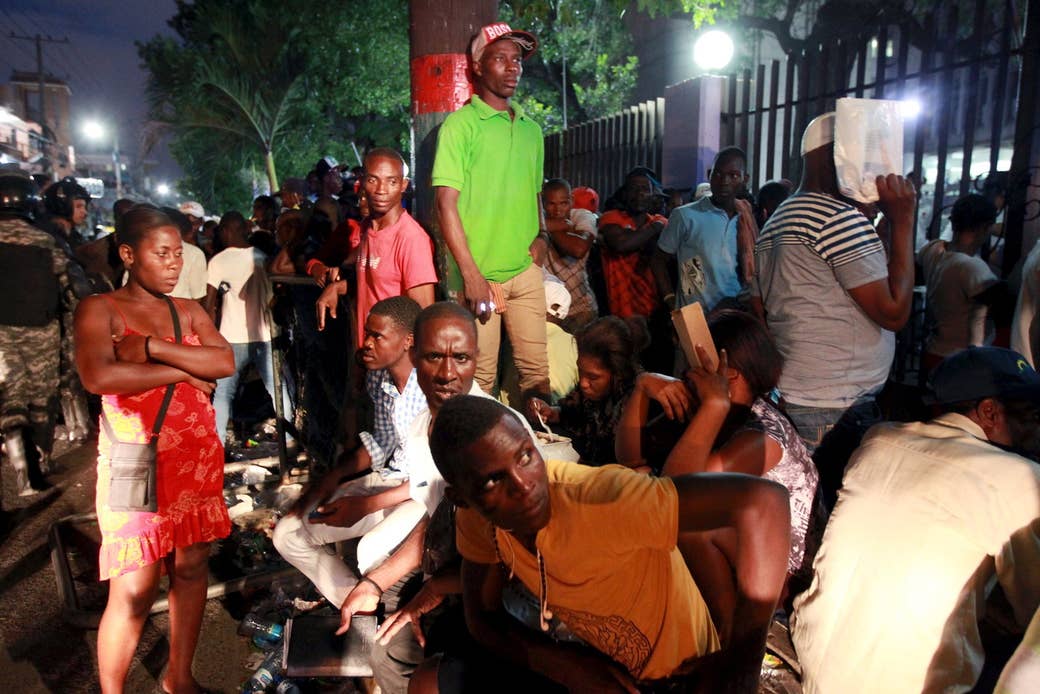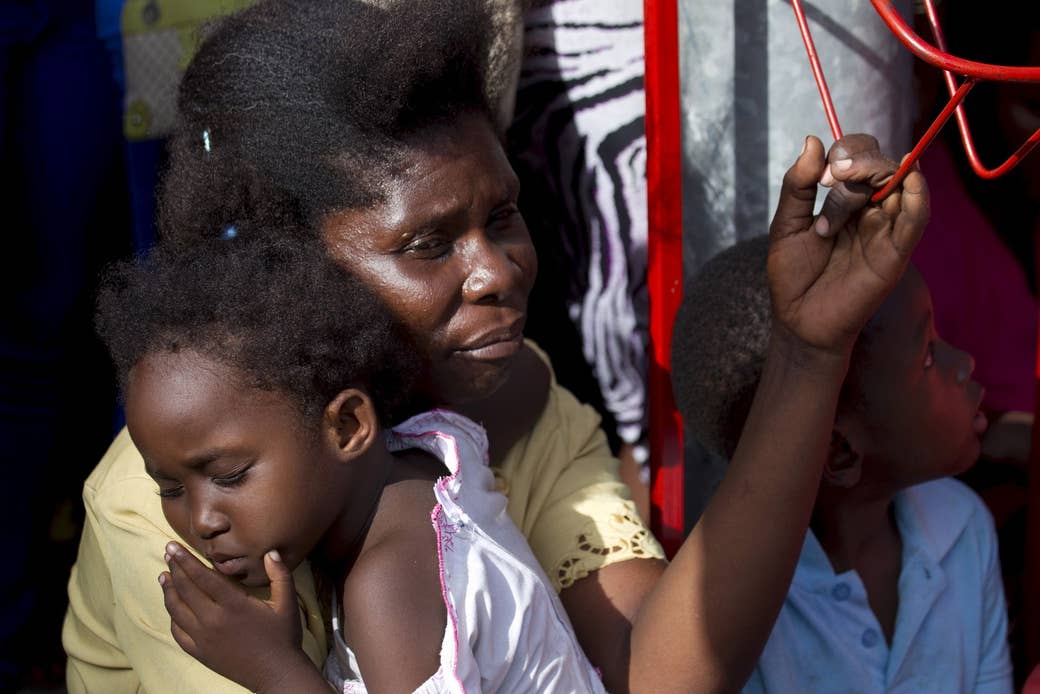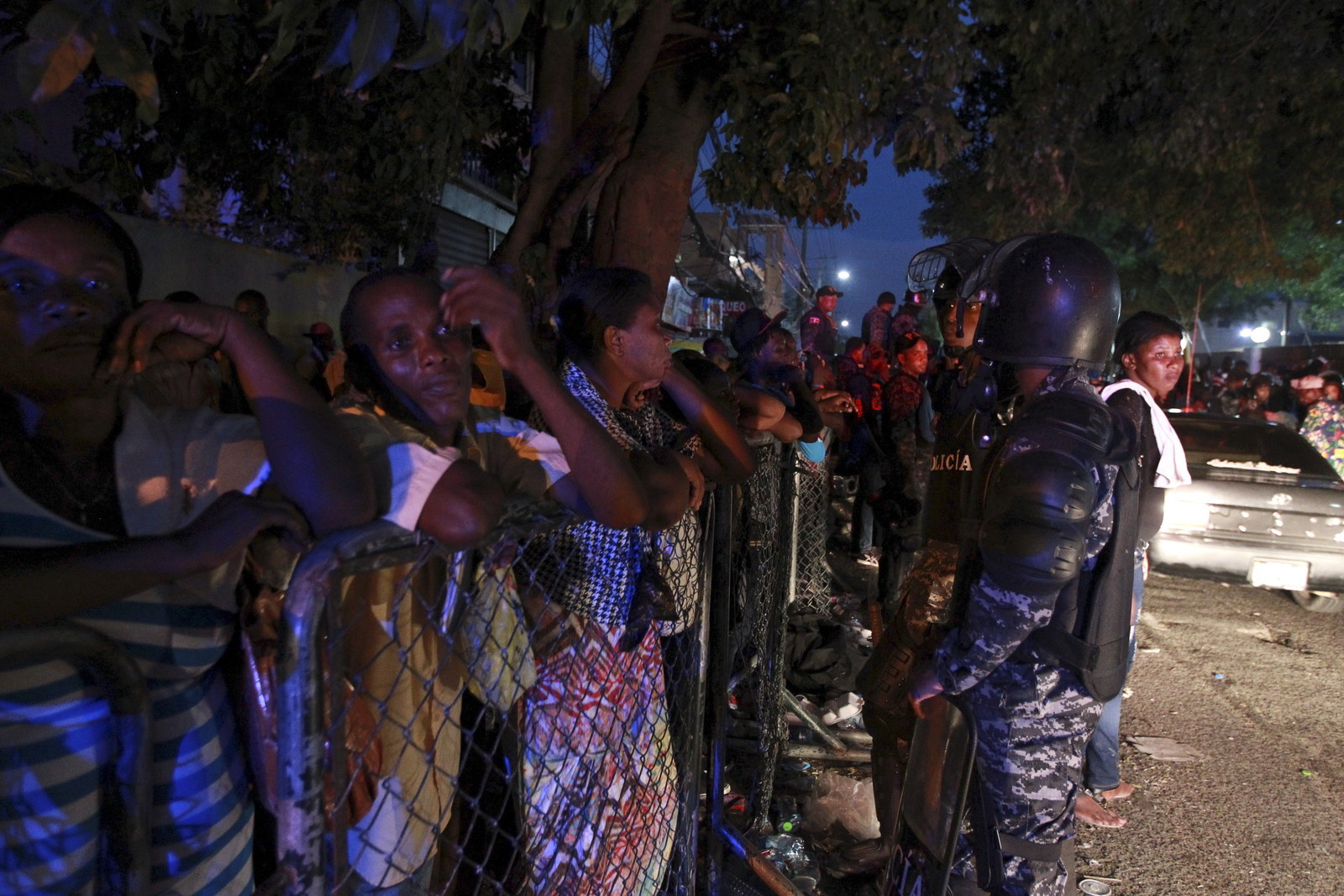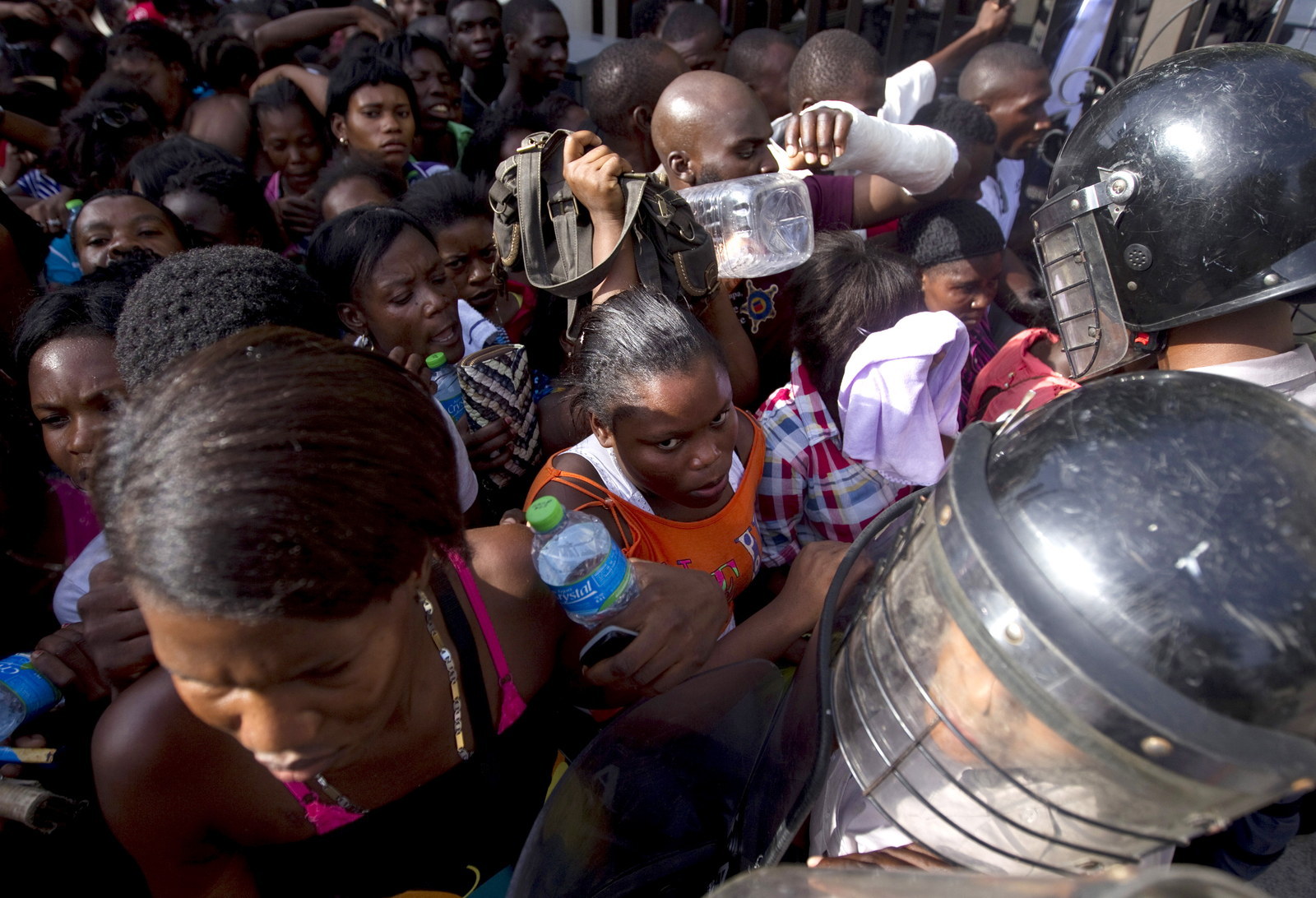
As the Dominican Republic begins what has been called a “vicious, slow-motion pogrom” on black Dominicans and Dominicans of Haitian descent — stripping them of their citizenship and rounding them up for deportation en masse — I think of writer Gloria Anzaldúa’s words about living in the shadow of a border that crosses identities and shatters lives: “you are the battleground / where enemies are kin to each other; / you are at home, a stranger.”
These are still days of conceptual lines that become political lines, which are then militarized: the lines across which battles of life and death play out, now in slow motion, suddenly faster than a bullet. These lines crisscross our geographies and identities; they are both porous and razor-sharp, always unforgiving.
The Dominican government’s fear of blackness dates back to its Spanish colonizers and became a matter of policy under the dictator Rafael Trujillo, who murdered tens of thousands of Haitians living in the Dominican Republic in 1937 and displaced hundreds of thousands more. Anti-Haitian sentiment became a rallying cry for some Dominican nationalists, a way to distinguish the supposedly more “European” Dominicans from their Haitian neighbors. That prejudice survived Trujillo’s genocide, however, and is now manifesting in the revocation of citizenship from anyone deemed by the state to be of Haitian ancestry, which translates to anyone viewed as black. As mass detention centers are set up, antiblack mob violence has been on the rise, including beatings, burnings, and lynchings. And since history does indeed rhyme, we must see these actions for what they have always historically been: the run-up to a massacre.

As I write, government buses are taking to the streets of Santo Domingo to detain and deport black Dominicans. With 1.5 million residents in the U.S., Dominicans make up the fifth largest Latino population in the country and the largest immigrant group in New York state. But some Latino news sites were slower even than mainstream outlets to acknowledge the ongoing crisis facing hundreds of thousands of Dominicans. And while a few Latino writers have spoken out (notably Junot Díaz and Julia Alvarez), Latino celebrities have for the most part remained entirely silent.
Sadly, we can’t be surprised by this silence. Antiblackness has run deep in the Latino community as long as there’s been a Latino community. Much like the wider American mythology of a glorious melting pot, we love waxing faux-etic about the multilayered fabric of our identity: We are a tapestry; we are a taco, a mofongo, a paella — so many flavors! In truth, we are a shattered family, a house deeply divided by white supremacy and colorism. It’s as true in Latin America — yes, even Cuba — as it is in the United States.
Watching the news can make you feel like racism against blacks worldwide is on the rise, but what we’re really seeing is the hard work of dedicated activists demanding that the world pay attention, often for the first time, to ongoing legacies of police violence, cultural appropriation, mass displacement. There is nothing new about state violence against black life. And these are truths we all need to address directly in order to heal and move forward.

Meanwhile, we’re still stuck saying “black and Latino” as if they are mutually exclusive categories. Almost every facet of Latino culture that has exploded as a global pop culture phenomenon — from tango to mambo, cha cha cha, and salsa to bachata and reggaeton — has been rooted in black culture, even if the faces we associate with them aren’t usually black ones. As Young Adult novelist Sofia Quintero writes: "To be Latin@ yet claim one’s Blackness in a world that is constantly devaluing “negritude” is, I believe, an act of healing and resistance.
In the white mainstream imagination, the default setting for Latinos is white/light brown, a comfortable, neither-here-nor-there exotic that allows the diversity box to be checked without the perceived threat of blackness. Panel after panel of Latinos in the Media, Latinos in Literature, Latinos in Lo Que Sea come and go with nary a black face in the mix. This is why I have learned to be explicit with publishers about what characters look like, from skin color to hair: If I don’t, history has proven that they will be whitewashed or lightwashed in the name of appearing more “universal,” a word that we have rendered meaningless from so much misuse in the justification of ongoing Eurocentricism.
For those of us who are Latino and not black: What progress we have made within this nation, which was not built for us, comes in part because we are benefactors of a system that has kept our black brothers and sisters down. It’s for us to own that. In this broken world — where the cliché of rugged individualism pervades our notion of success, survival, and humanity — privilege is a finite resource. Today as yesterday, the system determines our worth by our proximity to whiteness. Our complicity in this ongoing American horror story is not a point to become paralyzed with guilt over; guilt leads to silence, and silence is what got us here. But it is a rallying point, a reason to be brave, outrageous, and humble, as we move forward into the uncertainty of what’s to come.

“We must fight for your life as though it were our own—which it is,” James Baldwin wrote to Angela Davis as she awaited trial, “and render impassable with our bodies the corridor to the gas chamber. For, if they take you in the morning, they will be coming for us that night.” Indeed, the legislation that the Dominican state is today inflicting on its own people is not such a far cry from some of the Republican immigration “solutions.” They are not one and the same, and they are both different from the specific struggle Baldwin speaks of here. The differences matter, as do the connections. We cannot scream for justice here while allowing injustice to be carried out in our name, by the complicity of our silence, elsewhere.
Across the country, Latino artists are making strides and letting our voices be heard. We are loud and unapologetically us, and I love us. And amid this renaissance, we must also be unapologetically honest about who we really are, who we have been, how we have broken, and how we can heal. Flavia Dzodan once wrote: “My feminism will be intersectional or it will be bullshit.” I’ll close with a respectful remix of this truism: My Latin pride will be rooted in the unequivocal truth that Black Lives Matter, or it will be bullshit.
This story has been updated to include a quotation from Sofia Quintero.
